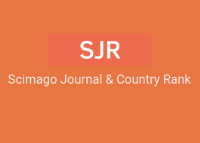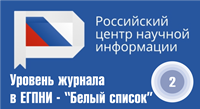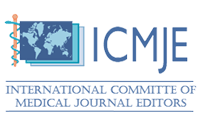ПРАВОВОЙ СТАТУС ВСПОМОГАТЕЛЬНЫХ РЕПРОДУКТИВНЫХ ТЕХНОЛОГИЙ В МУСУЛЬМАНСКИХ СТРАНАХ
Аннотация
Обоснование. Применение вспомогательных репродуктивных технологий (ВРТ) зачастую сопряжено со спорными этическими и правовыми вопросами, которые представляют интерес для исследователей.
Цель. Формирование комплексного представления о пределах применения определённых видов технологий.
Материалы. В данной работе проведено исследование правового регулирования ВРТ на основании законодательства 13 мусульманских стран: Омана, Саудовской Аравии, Бахрейна, Марокко, Иордании, ОАЭ, Малайзии, Ирана, Ливана, Египта, Алжира, Туниса и Турции.
Результаты. Ввиду ряда религиозных, этических, юридических и социальных причин доступ к вспомогательным репродуктивным технологиям долгое время был невозможен, однако в последние десятилетия муджтахиды и факихи пришли к выводу, что для благосостояния уммы репродукция с медицинской помощью может быть допустимой в отдельных случаях и должна быть урегулирована на законодательном уровне, так и соответствующими фатвами. Авторами исследования отмечается общая тенденция регулирования в государствах Персидского залива и Северной Африки, тем не менее некоторые другие мусульманские страны, такие как, например, Иран и Малайзия, более детально и лояльно подходят к данной проблематике.
Заключение. Несмотря на то, что в доктрине устоялось категорическое мнение теологов в отношении закрытости так называемых врат «аль-иджтихад», на практике существуют правовые механизмы и инструменты для расширительного толкования нормативно-правовых актов и впоследствии их более широкого применения, поскольку они опираются на давно устоявшиеся институты и, по сути, не противоречат основам Корану и Сунны Пророка Мухаммада. Однако специфика мусульманского права сохраняется.
Скачивания
Литература
References / Список литературы
Al-Torki S. Milk Kinship in Arabic Society: An Unexplored Problem in the Ethnography of Marriage. Ethnology, 1980, vol. 19, no. 2. pp. 233–244; https://doi.org/10.2307/3773273
Chernogor N.N., Zemlin A.I., Kholikov I.V., Mamedova I.A. Impact of the Spread of Epidemics, Pandemics and Mass Diseases on Economic Security of Transport. E3S Web of Conferences, 2020, vol. 203. https://doi.org/10.1051/e3sconf/202020305019;
Colliers. Market Report: IVF in the MENA Region. Focusing on the UAE, KSA & Egypt. 21.06.2021. https://www.colliers.com/en-ae/research/dubai/ivf-in-the-mena-region
Dickens B.M., Serour G.I., Cook R. J., Qiu R. Z. Sex selection: treating different cases differently. International Journal of Gynecology & Obstetric, 2005, vol. 90, no. 2. pp. 171–177.
Eberstadt N., Shah A. Fertility Decline in the Muslim World. Policy Review, 2012, vol. 173, pp. 29–44. https://www.hoover.org/research/fertility-decline-muslim-world
Gürtin Z. B. Assisted Reproduction in Secular Turkey: Regulation, Rhetoric, and the Role of Religion. In Inhorn M.C., Tremayne S. (eds.). New York: Berghahn Books, 2012.
Gürtin Z. B. Banning Reproductive Travel? Turkeyʼs ART Legislation and Third-Party Assisted Reproduction. Reproductive Biomedicine & Society Online, 2011, vol. 23. pp. 555-565. https://doi.org/10.1016/j.rbmo.2011.08.004
Gürtin Z. B. Patriarchal pronatalism: Islam, secularism and the conjugal confines of Turkey’s IVF boom. Reproductive Biomedicine & Society Online, 2016, Vol. 2, pp. 39–46. https://doi.org/10.1016/j.rbms.2016.04.005
Haeri S. Law of Desire: Temporary Marriage in Shi’i Iran (Contemporary Issues the Middle East). Syracuse University Press, 1989. 312 p.
Inhorn M. C. Cosmopolitan Conceptions: IVF Sojourns in Global Dubai. Journal of International and Global Studies, 2015, vol. 8, no. 2. pp. 103–106
Inhorn M. C., Birenbaum-Carmeli D., Tremayne S., Gürtin Z. B. Assisted reproduction and Middle East kinship: a regional and religious comparison. Reproductive Biomedicine & Society Online, 2017, Vol. 4, pp. 41–51. https://doi.org/10.1016/j.rbms.2017.06.003
Inhorn M. C., Tremayne S. Islam and Assisted Reproductive Technologies: Sunni and Shia Perspectives. New York: Berghahn Books, 2012. 346 p.
Islamic Organization of Education, Science and Culture (ISESCO). Ethical implications of human embryo research. Serour G. I. (editor). Morocco: Rabat, 2002. http://archive.isesco.org.ma/templates/isesco/publications/en/Human%20Embryo/humanEm.php;
Islamic Organization of Education, Science and Culture (ISESCO). Ethical reflection of advanced genetic research. Qatar: Doha, 1993. http://www.bioline.org.br/pdf?mf05030
Khan M. A. Z., Konje J. C. Ethical and religious dilemmas of modern reproductive choices and the Islamic perspective. European Journal of Obstetrics & Gynecology and Reproductive Biology, 2018, vol. 232, pp. 5–9. https://doi.org/10.1016/j.ejogrb.2018.10.052
Kholikov I.V., Sazonova K.L. International legal aspects of responsibility of states and international organizations for the spread of epidemics, pandemics and mass diseases. Military Medical Journal, 2015, no. 8. pp. 51–57. https://doi.org/10.17816/RMMJ73965
Kooli C. Review of assisted reproduction techniques, laws, and regulations in Muslim countries. Middle East Fertility Society Journal, 2020, vol. 24, no. 8. https://doi.org/10.1186/s43043-019-0011-0
Lustig A. B., Brody B. A. McKenny G. P. Altering Nature: Volume II: Religion, Biotechnology, and Public Policy (Vol. 97–98 of Philosophy and Medicine). Springer, 2008. 356 p. https://doi.org/10.1007/978-1-4020-6923-9
Melnichenko P.I., Damaskin O.V., Kholikov I.V. Organizational-legal aspects of resistance to spread of HIV/AIDS in servicemen. Military Medical Journal, 2005, no. 2, pp. 50-54.
Population Division of Department of Economic and Social Affairs of the United Nations. World Population Prospects: the 2019 Revision. United Nations, New York. URL: https://population.un.org/wpp/Download/Files/1_Indicators%20 (Standard)/EXCEL_FILES/2_Fertility/WPP2019_FERT_F04_TOTAL_FERTILITY.xlsx
Ryan P. UAE legal reforms: What the law says about children born outside marriage. 28.11.2021. https://www.thenationalnews.com/uae/courts/2021/11/28/uae-legal-reforms-what-the-law-says-about-children-born-outside-of-marriage/
Sazonova K. L., Kholikov I.V. The Ebola Response Team Deployment in the Guinea Republic: Organizational, Ethical, Legal Issues and a Problem of Responsibility. Ethical Challenges for Military Health Care Personnel. Messelken D., Winkler D. (editors). New York: Routledge, 2018. pp. 38-51.
Sargent C., Clarke M. Islam and New Kinship: Reproductive Technology and the Shariah in Lebanon (Fertility, Reproduction and Sexuality: Social and Cultural Perspectives Book 16), New York: Berghahn Books, 2012. 254 p.
Serour G. I. Islam and the four principles. In Principles of Health Care Ethics. in Raanan Gillon (ed). John Wiley & Sons Ltd, London, 1994. pp. 75–91.
Serour G. I. Islamic perspectives in human reproduction. Reproductive Biomedicine and Society Online, 2008, vol. 17, Suppl. 3, pp. 34–38. http://www.rbmonline.com/Article/3387
Serour G. I., Dickens B. M. Assisted reproduction developments in the Islamic world. International Journal of Gynecology & Obstetrics, 2001, vol. 74, no. 2. pp. 187–193. https://doi.org/10.1016/S0020-7292(01)00425-8
Sultan H.A., Harper J. C. Legalization and Islamic Bioethical Perspectives on Prenatal Diagnosis and Advanced Uses of Preimplantation Genetic Diagnosis in Saudi Arabia. Journal of Clinical Research & Bioethics, 2012, vol. 1, no. 003. https://doi.org/10.4172/2155-9627.S1-003
The United Nations Educational, Scientific and Cultural Organization (UNESCO). Universal declaration on bioethics and human rights. Paris, 2005. http://unesdoc.unesco.org/images/0014/001461/146180E.pdf
Tremayne S., Akhondi M. M. Conceiving IVF in Iran. Reproductive Biomedicine and Society Online. 2016. Vol. 2. P. 62–70. https://doi.org/10.1016/j.rbms.2016.07.002
United Nations. Consideration of reports submitted by States parties under article 40 of the Covenant: International Covenant on Civil and Political Rights: 5th periodic report: Tunisia, 2007. http://dag.un.org/bitstream/handle/11176/266000/CCPR_C_TUN_5-EN.pdf?sequence=1&isAllowed=y
Zhdanov K.V., Kholikov I.V. Provision of aid to the Guinea Republic in struggle against Ebola epidemics. Military Medical Journal, 2015, no. 2. pp. 93-95.
محمد النجار جدل بشأن تحديد جنس المولود [Al-Najjar M. Controversy over the determination of the sex of the newborn]. 04.10.2010. https://www.aljazeera.net/news/healthmedicine/2010/10/4/جدل-بشأن-تحديد-جنس-المولود
Просмотров аннотации: 426
Copyright (c) 2023 Viktor A. Shestak, Alyona D. Tsyplakova, Ivan V. Kholikov

Это произведение доступно по лицензии Creative Commons «Attribution-NonCommercial-NoDerivatives» («Атрибуция — Некоммерческое использование — Без производных произведений») 4.0 Всемирная.

























































